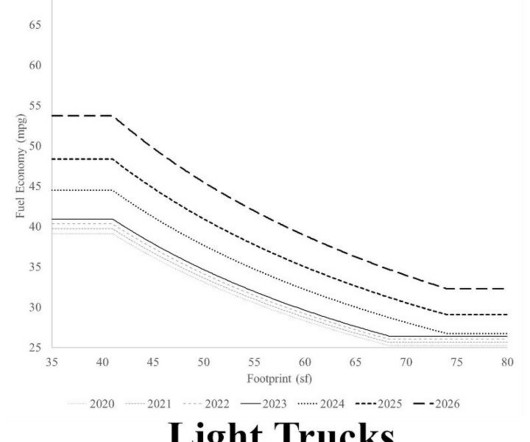Michigan representative: roll fuel economy rules back to 'reasonable' level
Green Car Reports
SEPTEMBER 27, 2016
Right now, the debate over the future of Corporate Average Fuel Economy (CAFE) standards is in full swing. Today, they call for a fleet average of 54.5 mpg (or about 38 mpg on window stickers) by 2025 for vehicles sold in the U.S.




































Let's personalize your content